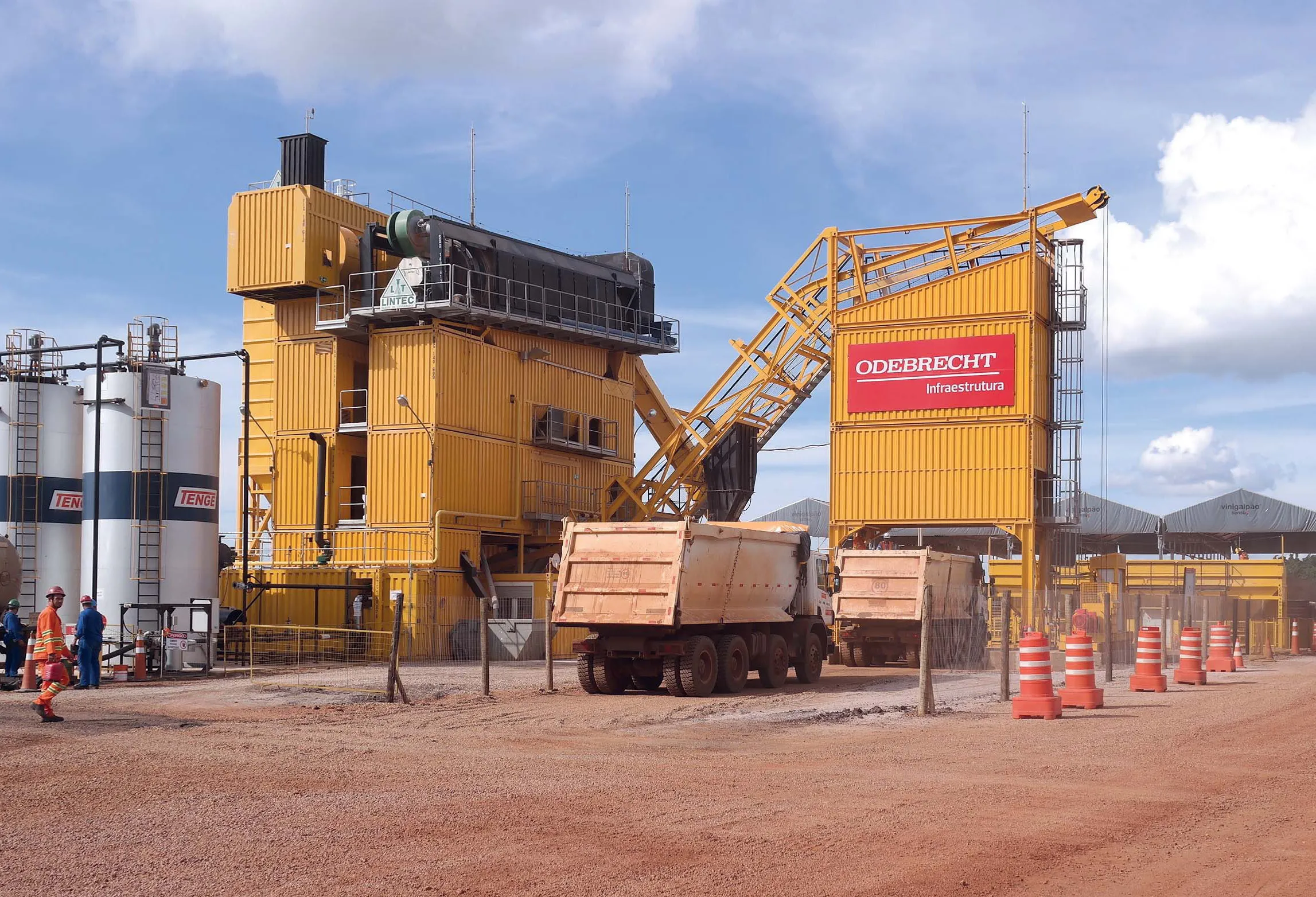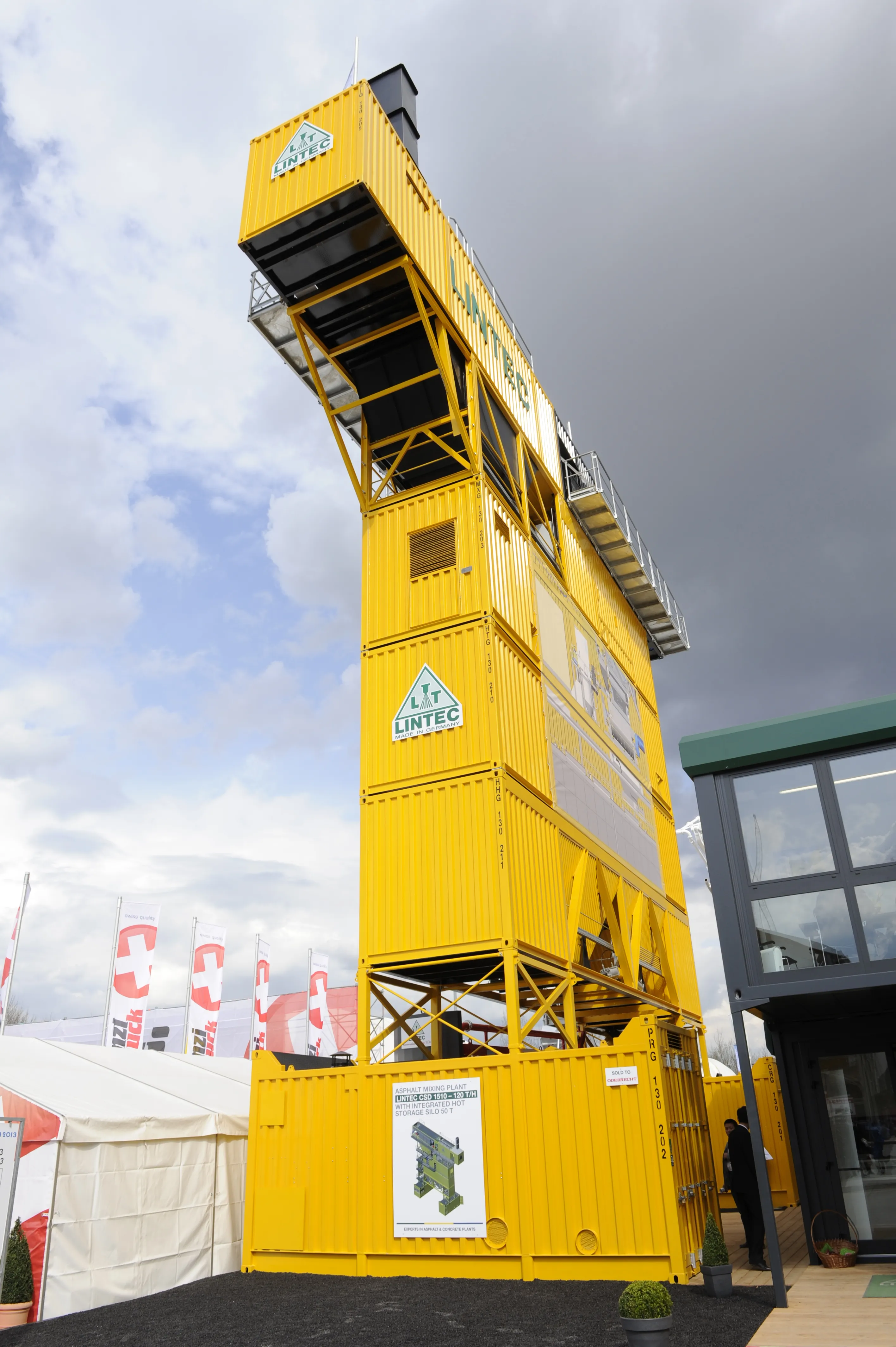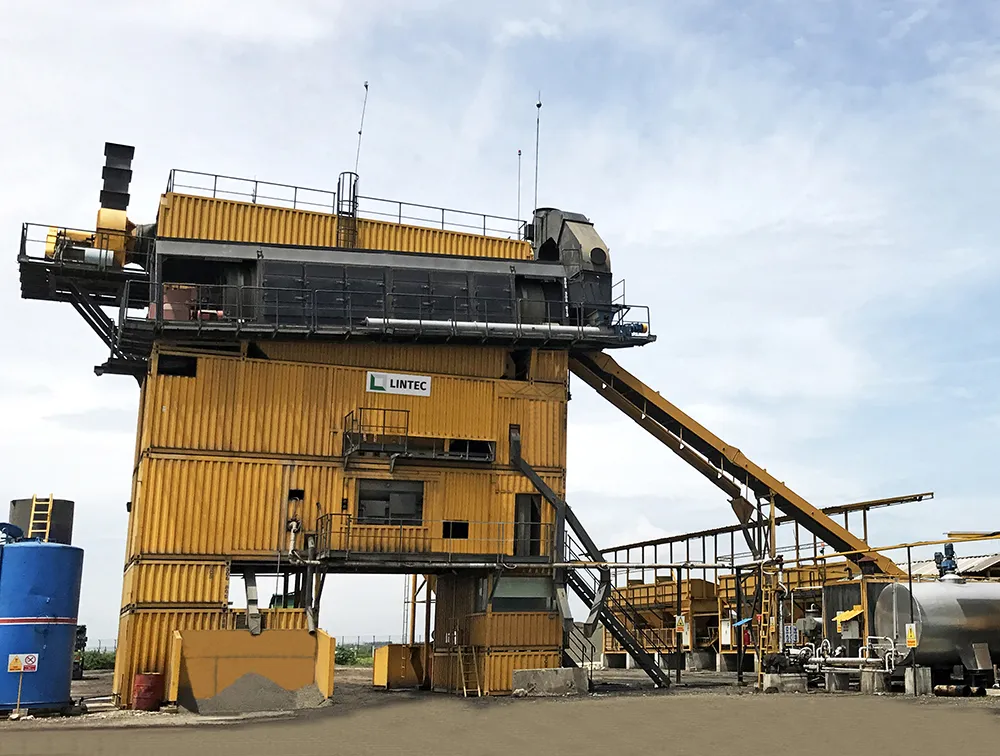German manufacturer LINTEC has supplied three of its highly sophisticated, containerised asphalt mixing plants for use on the important BR-163 highway project in Brazil. This is one of several major plant orders for the firm for use in road projects in Latin America. According to LINTEC, its activity in this market is helping contribute to the construction of high quality roads that will last.
August 18, 2015
Read time: 4 mins

German manufacturer Lintec has supplied three of its highly sophisticated, containerised asphalt mixing plants for use on the important BR-163 highway project in Brazil. This is one of several major plant orders for the firm for use in road projects in Latin America. According to LINTEC, its activity in this market is helping contribute to the construction of high quality roads that will last.
The BR-163 highway project is crucial for Brazil and is meant to improve, and, at some points, duplicate the highway that connects the northern state of Pará with the southern states Santa Catarina and Rio Grande do Sul. The new link is needed as traffic volumes are growing and the existing route suffers heavy congestion at several points, especially at peak periods. The existing highway carries some 70,000 vehicles/day in the Mato Grosso area alone. Of these vehicles, up to 68% are trucks and these carry 21% and 33% of Brazil´s annual corn and soybean production, respectively. Clearly, the route is important for Brazil’s economy but it was previously unpaved in many areas. It is currently being upgraded as a part of the Brazilian government´s broader vision to upgrade the countries entire infrastructure system.
One part of the BR-163 project is the concession for Mato Grosso which is in the hands of Rota do Oeste (1305 Odebrecht Transport). The concession was set up with the aim to conserve, maintain, and improve an 850km stretch of road that runs from one of Mato Grasso’s Northern cities Sinop, to the southern part of the state. This route is important economically as it will help transport goods from a key agricultural area of the country. Next to improving the existing road, the project aims to duplicate the road over the entire length of the route. Odebrecht is constructing around 453km, while the remaining 400km is being managed by the Brazilian National Department of Transport and Infrastructure (DNIT).
In order to be able to produce the quantities of asphalt required for the tight schedule of the BR-163 project, Odebrecht ordered two sophisticated CSD 3000 batch asphalt plants with a combined capacity of 480tonnes/hour from1177 LINTEC. Both plants have been equipped with bitumen and diesel tanks, additive feeding systems, external filler silos and hot mix storage silos, for high performance and high quality asphalt. From the German port of Hamburg via the port of Santos in Brazil the plants made their journey to the strategically located construction sites near Rondonóplis at km 51 and km 95 of the BR-163. After the completion of this stretch scheduled for 2015, the plants will be shifted to the country’s northern region to work on the next stretches of the highway. The fact that the plants are containerised makes further relocations easier, reducing transport time and cost and allowing quick set-up times due to the modular concept.
Another part of the BR-163 project is the MSVia concession in Mato Grosso do Sul, which, just like the Rota do Oeste concession, is currently duplicating the highway. The MSVia concession, operated by CCR, connects the north of Mato Grosso do Sul with the most southern point of the state, and is, according to CCR, currently being duplicated at 10 locations with a total of 89.2km, of which the first 10% is to be completed by October 2015. The 80tonne/hour capacity CSD 1200 LINTEC plant is being used on this stretch and operated by asphalt producer Usicity.
Due to the rising demand in Brazil and in South America for batch asphalt mixing plants, LINTEC recently acquired a local manufacturer of mixing technology and as LINTEC-IXON started producing localised LINTEC containerised asphalt mixing plants. The first plant, a CSD 2500B capable of delivering 160tonnes/hour, was displayed at the last M&T fair in Sao Paolo this June.
The BR-163 highway project is crucial for Brazil and is meant to improve, and, at some points, duplicate the highway that connects the northern state of Pará with the southern states Santa Catarina and Rio Grande do Sul. The new link is needed as traffic volumes are growing and the existing route suffers heavy congestion at several points, especially at peak periods. The existing highway carries some 70,000 vehicles/day in the Mato Grosso area alone. Of these vehicles, up to 68% are trucks and these carry 21% and 33% of Brazil´s annual corn and soybean production, respectively. Clearly, the route is important for Brazil’s economy but it was previously unpaved in many areas. It is currently being upgraded as a part of the Brazilian government´s broader vision to upgrade the countries entire infrastructure system.
One part of the BR-163 project is the concession for Mato Grosso which is in the hands of Rota do Oeste (
In order to be able to produce the quantities of asphalt required for the tight schedule of the BR-163 project, Odebrecht ordered two sophisticated CSD 3000 batch asphalt plants with a combined capacity of 480tonnes/hour from
Another part of the BR-163 project is the MSVia concession in Mato Grosso do Sul, which, just like the Rota do Oeste concession, is currently duplicating the highway. The MSVia concession, operated by CCR, connects the north of Mato Grosso do Sul with the most southern point of the state, and is, according to CCR, currently being duplicated at 10 locations with a total of 89.2km, of which the first 10% is to be completed by October 2015. The 80tonne/hour capacity CSD 1200 LINTEC plant is being used on this stretch and operated by asphalt producer Usicity.
Due to the rising demand in Brazil and in South America for batch asphalt mixing plants, LINTEC recently acquired a local manufacturer of mixing technology and as LINTEC-IXON started producing localised LINTEC containerised asphalt mixing plants. The first plant, a CSD 2500B capable of delivering 160tonnes/hour, was displayed at the last M&T fair in Sao Paolo this June.








